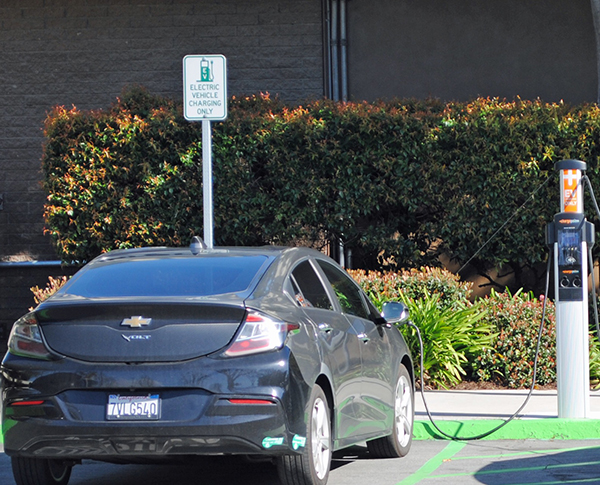By Arnold Adler
Contributing Writer
Norwalk and Paramount have joined the list of area cities that are planning to purchase electric vehicles and provide charging stations for them to reduce pollution caused by gasoline fueled vehicles and fight climate change.
The Norwalk City Council, on a 5-0 vote Sept. 6, approved the purchase of three electric buses and two charging stations after agreeing to purchase two electric-powered buses and two charge stations in July.
Also on Sept. 6, the Paramount City Council approved a contract to install 22 charging stations in city parks in addition to the two charging stations that already exist. The vote was 5-0.
Paramount also is expected to approve an ordinance at its Sept. 20 meeting that would establish rules for the installation of charging stations on private properties. Tentative approval was granted Sept. 6.
In Paramount, the city’s existing charging stations and the upcoming charging stations will utilize ChargePoint charging products, according to Public Works Director Adriana Figueroa.
ChargePoint, based in Campbell, California, has an extensive network of stations all over North America and Europe, Figueroa told the council.
She said Southern California Edison had to approve the charge stations because it would supply the electricity.
The city has received permission from Edison for the installation of 10 charging ports (five stations) at Paramount Park and another 12 (six stations) at Progress Park.
The city will pay ChargePoint $164,594 or the 11 new charging stations, costs that will be offset by a $2,900 per charger rebate from Edison.
In Norwalk, the Sept. 6 action amended a July agreement with a company named Gillig in which the city agreed to electric buses and two bus chargers through a cooperative agreement with the state of Washington.
The council’s most recent action amends the agreement to include the purchase of three additional Gillig electric buses and two additional charge stations, according to James C. Parker, executive director of regional transportation for the city.
“The base unit price of $813,044 for each bus excludes agency differentials, producer price index delivery fee, non-taxable Americans with Disabilities Act equipment, diagnostic tooling, spare parts and applicable taxes,” Parker said in a report to the council. The estimated cost is $1 million per bus and $88,400 per charging station.
The original two buses purchased in July and two ChargePoint chargers are scheduled for delivery in 2023. The additional three buses and charge stations are expected in 2024, he said.
The total estimated cost of $5,370,186 will be funded through Federal Transit Authority funds and various local matching funds,” Parker said.












